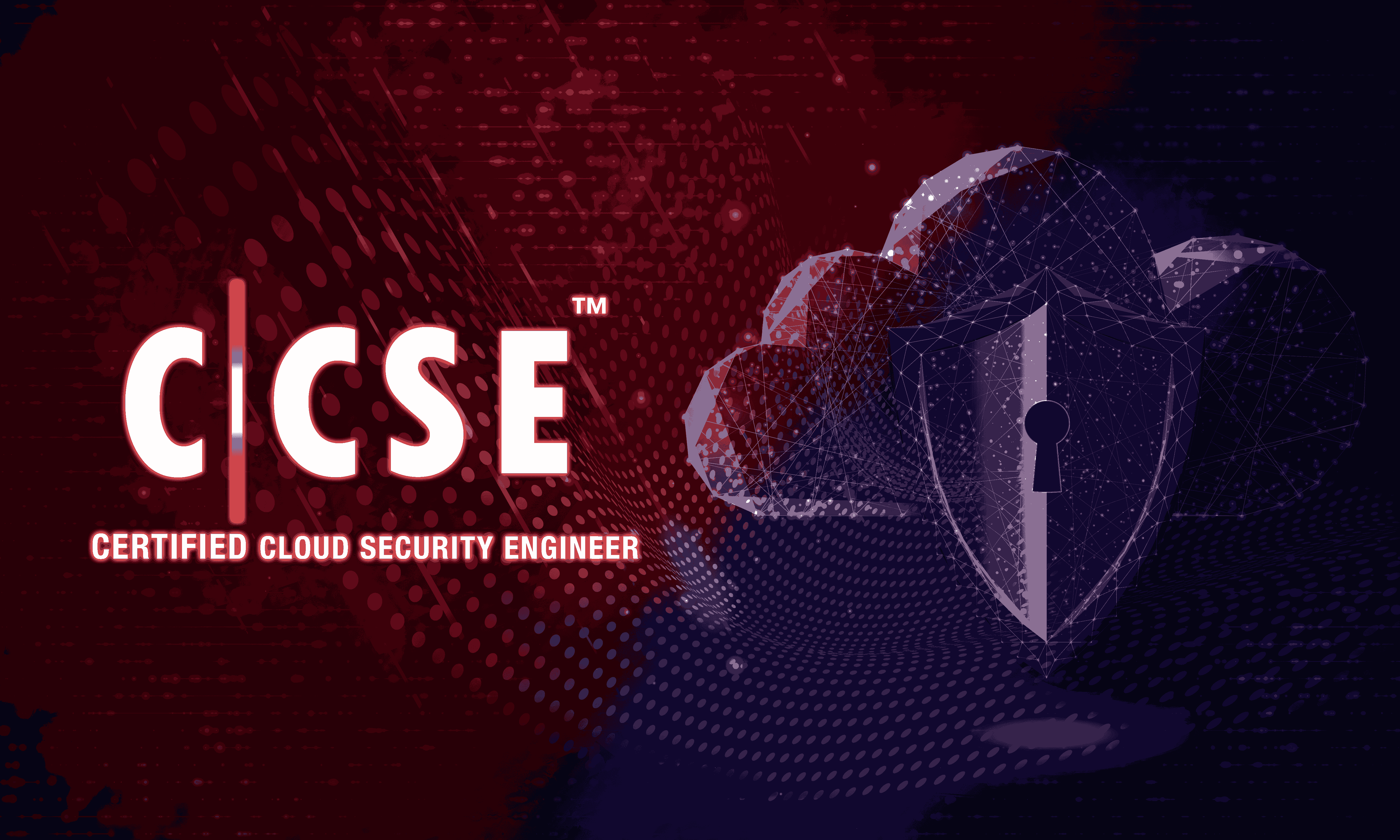TRAIN FOR NEXT GENERATION
Certified Cloud Security Engineer CCSE
Certified Cloud Security Engineer CCSE certification is a credential that validates expertise in securing cloud environments. As businesses increasingly rely on cloud services for their operations, the demand for skilled professionals who can ensure the security of cloud-based systems has grown significantly. Certified Cloud Security Engineer CCSE holders possess comprehensive knowledge of cloud security principles, best practices, and technologies across various cloud platforms. This includes understanding the shared responsibility model, implementing security controls, managing identities and access, encrypting data, and monitoring for threats and vulnerabilities within cloud environments.
To earn the Certified Cloud Security Engineer CCSE certification, candidates typically undergo rigorous training and demonstrate proficiency through an examination that assesses their understanding of cloud security concepts and their ability to apply them in real-world scenarios. Certified Cloud Security Engineer CCSE certification equips individuals with the skills needed to design, implement, and manage robust security measures in cloud environments, thereby helping organizations mitigate risks and protect sensitive data stored and processed in the cloud. As cloud adoption continues to accelerate, CCSE certification remains highly relevant for professionals seeking to advance their careers in cloud security and meet the evolving needs of the industry.
what is the CISE Academy Certified Cloud Security Engineer CCSE Program?
____________________
CISE Academy’s approach to Certified Cloud Security Engineer CCSE encompasses a comprehensive understanding of practices, technologies, and strategies essential for protecting data, applications, and infrastructure within cloud computing environments. This involves the implementation of various measures, including encryption, access control, and threat detection, all aimed at preserving the confidentiality, integrity, and availability of data. By focusing on these key areas, CISE Academy aims to equip professionals with the necessary skills to safeguard cloud-based systems effectively.
The training provided by CISE Academy is specifically tailored to prepare individuals for the role of Certified Cloud Security Engineers. Through specialized courses, participants learn how to design, implement, and manage secure cloud architectures. These courses emphasize adherence to industry standards and regulations, ensuring that graduates are well-versed in compliance requirements relevant to cloud security. By imparting practical knowledge and hands-on experience, CISE Academy enables professionals to confidently address the unique challenges associated with securing cloud environments.

CISE Academy’s commitment to excellence extends beyond technical proficiency, fostering a culture of continuous learning and innovation in cloud security. By empowering professionals with both theoretical knowledge and practical skills, CISE Academy cultivates a community of adept and forward-thinking Certified Cloud Security Engineers poised to navigate the ever-changing landscape of cloud computing securely.
Key Advantages of Certified Cloud Security Engineer CCSE Certification
____________________
The Certified Cloud Security Engineer CCSE certification serves as a recognized entry point for individuals embarking on a career in cloud security, affirming essential competencies in safeguarding cloud environments. It validates foundational knowledge in cloud infrastructure, security protocols, and risk mitigation strategies, positioning professionals for success in the dynamic field of cloud security.
- Adaptable to business growth.
- Cost-Efficiency: Pay-as-you-go model.
- Anytime, anywhere access.
- Continuous threat protection.
- Swift data restoration capabilities.
- Simplified regulatory adherence.
Certified Cloud Security Engineer CCSE Program Information
____________________
Module 01: Introduction to Cloud Security
Module 02: Platform and Infrastructure Security in the Cloud
Module 03: Application Security in the Cloud
Module 04: Data Security in the Cloud
Module 05: Operation Security in the Cloud
Module 06: Penetration Testing in the Cloud
Module 07: Incident Detection and Response in the Cloud
Module 08: Forensics Investigation in the Cloud
Module 09: Business Continuity and Disaster Recovery in the Cloud
Module 10: Governance, Risk Management, and Compliance in the Cloud
Module 11: Standards, Policies, and Legal Issues in the Cloud
Entry-level IT professionals
Security Analysts
Cloud Architects
DevOps Engineers
Compliance Officers
InfoSec Professionals
Cybersecurity Consultants
Software Developers
Cloud Service Providers
CND Certified Professional
- New security labs have been added around AWS, Azure, and GCP cloud platforms.
– Total number of labs in C|CSE $=88$ labs
– AWS $38 \mid$ Azure $19 \mid$ GCP 31 - Updated labs and best practices in cloud security, both vendor-neutral and vendor-specific, now align with the latest advancements in cloud technology.
- The course curriculum has been fully updated to include the latest security tools and techniques tailored for AWS, Azure, and GCP platforms.
Comprehensive Curriculum
Industry-Relevant Content
Hands-On Learning
Certified Instructors
Flexible Learning Options
Interactive Learning Platform
Industry-Recognized Certifications
Practical Projects
Networking Opportunities
Career Support
Certified Cloud Security Engineer CCSE FAQs
What is Certified Cloud Security Engineer CCSE?
Certified Cloud Security Engineer CCSE refers to protecting data, applications, and infrastructure in cloud environments from cyber threats.
What are the common threats to Certified Cloud Security Engineer CCSE?
Common threats include data breaches, unauthorized access, malware, and insider threats.
How does encryption contribute toCertified Cloud Security Engineer CCSE?
Certified Cloud Security Engineer CCSEEncryption helps protect data by converting it into an unreadable format, ensuring confidentiality during transmission and storage in the cloud
What are the best practices for securing data in the Certified Cloud Security Engineer CCSE?
Best practices include using strong authentication, implementing access controls, regularly updating security measures, and encrypting sensitive data.
How does Certified Cloud Security Engineer CCSE differ from traditional network security?
Cloud security requires a shared responsibility model between the cloud provider and the customer, whereas traditional network security primarily focuses on securing on-premises infrastructure.
